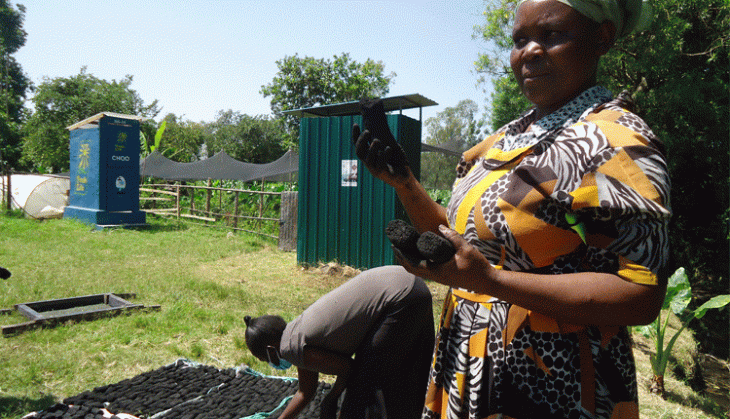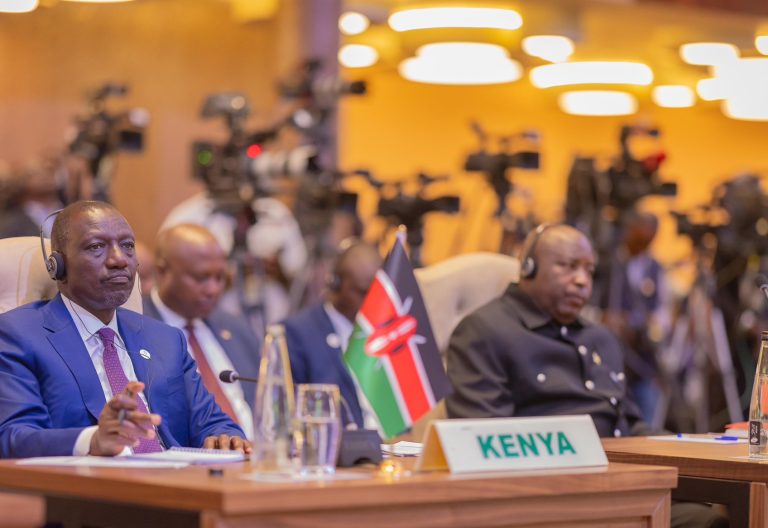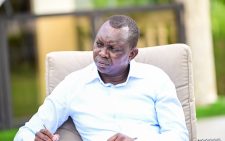Social enterprise champions women, youth empowerment

A group of 12 women in Kisumu’s Nyalenda informal settlement is on a mission to conserve the environment through making energy saving briquettes.
The12-member United Destiny Shapers (UDS) uses charcoal dust and sawdust as major raw materials to make locally fabricated briquettes from materials sourced from the informal settlement.
It landed the venture in 2016 with a view of preserving the environment from degradation and earning the members income.
“We initiated the activity to keep the environment clean and improve community livelihood.
A significant transformation has been realised as a result,” explains Pamela Awino, the group chairperson.
Awino says their activities have become integral in promoting healthy living through reduction of consumption of charcoal and fuel wood as a source of energy especially in Nyalenda area.
Charcoal dust and sawdust are used as main production materials, but they are blended with sticky porridge made from cassava flour to produce the briquettes.
All ingredients are mixed and sieved to eliminate unwanted materials.
Two male youths have been incorporated in the group to help in the production process.
They mix and sieve ingredients to make them suitable for production. Sieving separates soft charcoal dust from hard particles.
The mixture is fed into the briquettes machine and finished products are sun-dried for between two and three days depending on the weather before they get ready for use. Initially, members used to make briquettes using bare hands.
The women are rotationally involved in production work, which happens three days a week.
On average, the group can produce 100kg of briquettes in a day. The process consumes about 50kg sack of charcoal dust, with a sack of both charcoal dust and sawdust at Sh600 and of cassava at Sh1,600.
Community awareness
A 2kg tin of briquettes sold at Sh70 and charcoal at Sh100 for the same quantity.
At the marketing stage, the group members sensitise the community on the importance of using briquettes to encourage transition from charcoal and fuel wood as a way of saving the ecosystem from encroachment.
“We plan to explore the market niche by labelling our products for marketing in various places and learning institutions,” she says.
Awino adds that briquettes provide alternative affordable fuel to the community. She says Sh70 worth of briquettes can cook up to four meals in a day.
Rose Onyango, a member of the group, says the initiative is a source of economic empowerment to women, who are now experiencing financial turn-around.
“The project is transforming the lives of women who have been fully engaged in the work. Initially, most of us struggled to fend for our families,” she says.
The group’s activities got a boost after capacity building support from Women in Energy Enterprises in Kenya (WEEK) II project, championed by Practical Action, a non-governmental organisation working to alleviate poverty in communities.
With skills acquired, group members began making improved briquettes which not only improved their work efficiency but also fetched better returns.
Raymond Ombuor, project supervisor at Practical Action, says in the programme about 12 women groups have acquired knowledge and skills to take part in energy businesses through production of briquettes, improved cook stoves and solar products.
He says the Week II project has integrated groups from five counties in Western Kenya in sustainable energy value chains thus providing a platform for community economic empowerment.
The project is being implemented in seven counties: Kisumu, Siaya, Kakamega, Migori, Homa Bay, Nairobi and Makueni with the aim of empowering women as entrepreneurs through energy enterprises.
“We support the women to make quality briquettes through machines donation besides giving them funds to enhance quality and mass production of the products,” Ombuor says.
Further, the women are linked with the county governments to enhance their projects sustainability.
“There is an outlook of sustainability of the projects being undertaken by the women groups.
We are also carrying out market activation and campaigns to create awareness on such products,” he said.
Financial inclusion
The women’s group fall under the umbrella of a larger group of the same name that works with women and youth groups championing community transformation through environmental conservation programmes, civic education and advocacy for community sanitation and modern agricultural practices to boost food security
Job Oluoch, founder and director of UDS says as part of the empowerment process, the women have undergone training on financial literacy, how they can do marketing and record keeping for their products.
Similarly, Oluoch says some 55 women forming other sub-groups have been trained on saving, group dynamics and linkages to other programmes to increase their earnings.
“We train the groups on saving and loaning technology to enable them stand alone after capacity building,” he says.
As part of the ecosystem conservation, it has set up a biogas project, which uses cowdung collected from the community to produce gas.
The social enterprise, registered in 2017, also offers mentorship programmes to teenagers and young girls and is a source of employment particularly to young people where 15 are engaged directly as staff, and others indirectly supporting group activities.
“Our different activities are centred on community transformation, enhance economic empowerment and development where we work,” states Oluoch.











